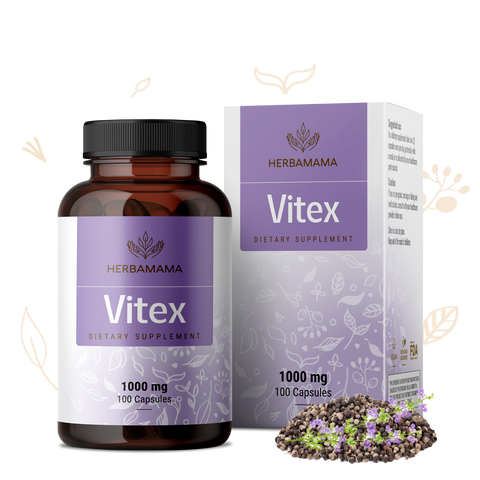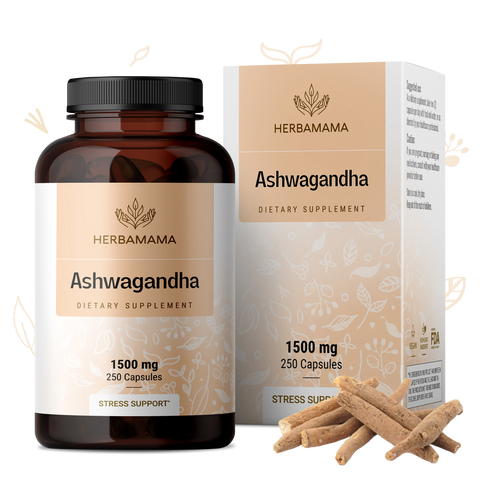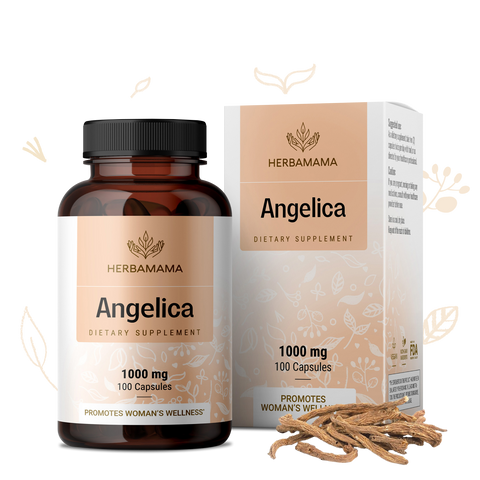In the complex network of the human body, the endocrine system plays one of the most pivotal roles, especially in women's health. This intricate network of glands secretes hormones directly into the bloodstream, regulating everything from growth and metabolism to reproduction and mood. In women, the delicate interplay of hormones like estrogen, progesterone and testosterone is not just crucial for reproductive health but also influences physical and mental well-being.
In women, balanced hormones facilitate seamless bodily functions, supporting everything from a regular menstrual cycle to stable mood, energy levels, and overall vitality. However, even slight hormonal fluctuations can disrupt this harmony. This leads to a range of health issues, including menstrual irregularities, weight gain, mood swings and more serious long-term health risks.
This article delves into the significance of maintaining hormonal balance for women's health. We’ll explore the factors that influence hormonal levels, as well as the natural ways to support and restore this balance.
The Importance of Hormonal Balance in Women
Balanced hormones lay the foundation of a female's overall health, having a profound effect on both physical and mental well-being.
First off, optimal hormonal health is paramount in maintaining reproductive health. It plays a critical role in the menstrual cycle, pregnancy and even the health of the skin. For instance, estrogen and progesterone not only dictate the rhythm of the menstrual cycle but also influence the skin's appearance, affecting its oiliness, moisture and elasticity. This balance is delicate – slight hormonal changes can lead to menstrual irregularities, fertility issues or skin conditions like acne or dryness.
Similarly, hormones like insulin and those produced by the thyroid gland are crucial in managing energy levels and body weight. They regulate metabolism, appetite and the body’s use of energy. The imbalances of these biochemical messengers can result in weight gain, fatigue or difficulties in weight management.
Not to mention, the impact of hormones extends deeply into the realm of mental health. Estrogen's interaction with serotonin, a key neurotransmitter associated with feelings of well-being, dictates what influence hormones can have on mood. Hormonal imbalance can cause unpleasant and uncontrollable mood swings, anxiety and even depression! This can be often observed during premenstrual phases, pregnancy, postpartum and menopause periods. Cortisol, the body's primary stress hormone, plays a pivotal role in how we handle stress. Yet, when imbalanced, it can lead to an overexerted stress response, making it difficult to manage daily pressures and exacerbating anxiety.
Moreover, hormones influence cognitive functions. Estrogen has a protective effect on the brain, enhancing memory and cognitive abilities. During periods of significant hormonal change, such as menopause, women may experience cognitive fog or memory lapses. This highlights the critical role hormonal balance plays in mental clarity and function.
Common Signs of Hormonal Imbalance
Fluctuating hormones in women can manifest through a myriad of signs and symptoms. However, they are often subtle and easily overlooked. These symptoms of hormonal imbalance can vary widely among individuals and over time, reflecting the complex nature of the body's hormonal interplay.
- Irregular Periods: One of the most straightforward indicators of hormonal imbalance is the irregularity of menstrual cycles. Periods that are too frequent, infrequent, absent or unpredictable can signal that a woman has issues with hormones such as estrogen and progesterone.
- Unexplained Weight Gain or Loss: Sudden changes in weight without significant alterations in diet or exercise routines may suggest hormonal disruptions. Conditions like hypothyroidism (low levels of thyroid hormone) can lead to weight gain, while hyperthyroidism (high levels of thyroid hormone) might cause weight loss. Insulin resistance, another hormonal issue, can also contribute to hormonal weight gain, particularly around the abdomen.
- Fatigue: Persistent tiredness that isn't relieved by rest and sleep can also be a sign of hormonal changes. Thyroid hormones are crucial for regulating energy levels, and imbalances can lead to feelings of fatigue. Adrenal hormones, including cortisol, play roles in stress response and energy. Imbalances here can cause chronic tiredness that is barely manageable.
- Mood Swings and Mental Health Issues: Hormonal instability can significantly impact mood and mental health. Estrogen has a notable effect on neurotransmitters like serotonin, which influences mood. Women with estrogen imbalances can experience mood swings like excitability, irritability, a feeling of sadness and melancholy. Sometimes such fluctuations can also lead to aggressiveness and rage, causing considerable inconveniences to women. Hormonal anxiety is also a well-known sign of unstable hormones manifesting as sudden feelings of overwhelming panic, unease or fear without an apparent trigger. This type of anxiety can be particularly confusing because it doesn't necessarily align with external stressors or events, making it difficult for women to understand or manage their reactions.
- Sleep Disturbances: Trouble falling asleep or staying asleep can often be linked to hormonal imbalances. Progesterone, known for its calming effect, can impact sleep quality when levels are low. Similarly, imbalances in cortisol, the stress hormone, can affect sleep patterns, leading to insomnia or disrupted sleep.
- Other Symptoms: Additional signs of hormonal imbalance can include but are not limited to skin issues like acne or dryness, hair loss or thinning, and memory fog or decreased concentration. Digestive problems and a reduced sex drive are also common.
How to Fix Hormonal Imbalance? Discussing Natural Ways To Managing Hormones
Supporting hormonal balance through natural means involves a holistic approach, focusing on diet, lifestyle and natural supplements. These methods work synergistically to promote optimal hormonal function, addressing imbalances and enhancing overall well-being.
Nutrition and Diet
The foundation of hormonal health lies in a balanced diet rich in nutrients that support endocrine function. Doctors and nutritionists advise focusing on foods containing omega-3 fatty acids. Omega-3s are crucial for producing hormones, reducing inflammation and supporting brain health. Wild-caught fish (salmon, mackerel), flaxseeds, chia seeds and walnuts are good sources of this compound.
Fiber also plays a key role in balancing blood sugar levels, which is essential for maintaining steady levels of insulin (a hormone that affects other hormonal systems.) Include plenty of vegetables, fruits, legumes and whole grains in your diet.
Not to mention, adequate protein intake can support the building blocks of hormone production. Focusing on lean meats, poultry, fish, eggs and plant-based proteins like lentils, chickpeas and quinoa can help women maintain a balanced hormone environment.
Conversely, certain foods can disrupt hormonal balance and should be limited. For instance, processed foods are high in unhealthy fats, additives and preservatives, which can lead to inflammation and hormonal imbalances. Overconsumption of sugar and caffeine can also pose a risk to hormonal balance. These products can spike insulin levels and stress hormones.
Lifestyle Modifications
Adjusting lifestyle factors is another pivotal aspect of supporting hormonal health. It involves long-term commitments to healthy habits that not only aim to balance hormones but also enhance overall well-being. These lifestyle modifications require consistency and patience, as changes in hormonal balance may take time to manifest. Still, ‘re-shaping’ your lifestyle habits is the best way to support your hormonal health and maintain a stronger, more resilient body and a clearer, more focused mind!
- Regular Physical Activity: Exercise can help balance hormones by reducing insulin levels and increasing sensitivity to this hormone. Aim for a mix of aerobic exercise, strength training and flexibility exercises.
- Stress Management Techniques: Chronic stress can wreak havoc on hormonal balance. Techniques such as meditation, yoga, deep breathing exercises and mindfulness help manage stress levels effectively, reducing the production of cortisol.
- Prioritizing Sleep: Quality sleep is also essential for hormonal regulation. Create a sleep-conducive environment by reducing blue light exposure before bedtime, maintaining a regular sleep schedule and ensuring your bedroom is cool and comfortable.
Natural Supplements and Herbs
Certain hormonal balance supplements can support hormonal health. They work gently and gradually, working synergistically with the body’s rhythms and processes. Some of the best hormonal balance supplements are:
Vitex is an ancient herb which has been used for centuries to address various female hormonal issues. It primarily influences the pituitary gland, which is responsible for signaling the production of certain hormones. Vitex is particularly renowned for its ability to normalize the ratio of progesterone to estrogen. This activity mitigates various hormonal imbalance symptoms like menstrual irregularities, premenstrual syndrome (PMS) and fertility issues.
Vitex works by enhancing the production of luteinizing hormone (LH) and gently inhibiting the release of follicle-stimulating hormone (FSH). This way vitex encourages a more regular ovulation cycle and stabilizes menstrual cycles.

As an adaptogenic herb, ashwagandha is primarily used for its ability to help the body manage stress. It impacts hormonal health by regulating cortisol levels, which can become imbalanced in response to chronic stress. Elevated cortisol can disrupt the delicate balance of other hormones, including thyroid hormones and sex hormones, leading to various health issues like fatigue, weight gain and irregular menstrual cycles. By mitigating stress and lowering cortisol levels, ashwagandha normalizes other vital hormones, contributing to improved energy levels, better sleep and enhanced reproductive health.

Herbamama Ashwagandha Supplement - 250 Capsules
Angelica, commonly referred to as "female ginseng", is a traditional Chinese herb celebrated for its benefits to women's hormonal health. It is often used to treat menstrual discomfort, regulate menstrual cycles and alleviate menopausal symptoms.
Angelica can affect the vascular system and improve blood flow, while also possessing mild estrogenic effects that can help balance hormone levels in the body. This can be particularly beneficial for women experiencing symptoms associated with hormonal fluctuations, such as hot flashes, night sweats and mood swings. Additionally, its antispasmodic properties can relieve menstrual cramps, making it a comprehensive treatment for a range of female hormonal issues.

Herbamama Angelica Supplement - 100 Capsules
Medical Help
Hormonal imbalances can sometimes stem from underlying health conditions that require professional diagnosis and treatment. Conditions such as thyroid disorders, polycystic ovary syndrome (PCOS) and adrenal gland disorders might not be fully managed through diet, lifestyle changes and supplements alone. Given this, consulting with a healthcare provider is crucial to address the symptoms and root causes effectively. They can conduct a thorough evaluation to diagnose the specific nature and cause of hormonal fluctuations. This step is crucial for determining the most effective hormonal imbalance treatment plan.
Final Thoughts
In conclusion, it’s important to note that balanced hormones are the cornerstone of a myriad of essential bodily functions. They literally regulate everything from reproductive health to mental well-being! They also orchestrate the complex network of processes that maintain our physical and emotional equilibrium.
In the fast-paced and often stress-laden environment of the modern world, a plethora of factors – from dietary choices to environmental exposure – can contribute to hormonal imbalances, disrupting this delicate harmony. Recognizing the critical importance of maintaining hormones within a healthy range cannot be overstated. It is not merely about preventing discomforting symptoms but also about safeguarding against more serious health risks.
By prioritizing hormonal health, women can empower themselves to lead fuller, healthier lives, marked by vitality and resilience. This guide underscores the significance of hormonal balance as a foundational aspect of women's health, advocating for awareness, proactive management and the pursuit of harmony within our bodies and lives.
Why Buy Our Supplements for Hormonal Balance?
Crafted with nature's finest ingredients, our hormonal balance pills, liquids and gummies aim to support your body's natural rhythm, promoting balance and well-being from within. Our commitment to quality ensures that you're nourishing your body with the most effective and wholesome ingredients known for their beneficial effects on hormonal equilibrium!
Frequently Asked Questions
1. What causes hormonal imbalance?
Hormonal imbalances in women can be caused by a variety of factors, including:
- Endocrine Gland Malfunction: Disorders of the thyroid, adrenal or pituitary glands can lead to imbalances in hormone production.
- Reproductive Life Stages: Puberty, pregnancy, breastfeeding and menopause are natural life stages that can cause fluctuations in hormone levels.
- Polycystic Ovary Syndrome (PCOS): This condition affects how a woman's ovaries work and can lead to imbalances in estrogen, progesterone and androgen levels.
- Stress: Chronic stress can lead to excess cortisol production, which can disrupt other hormone levels.
- Poor Diet and Obesity: A diet lacking in essential nutrients or an excess of unhealthy foods can contribute to hormonal imbalances. Obesity can also affect hormone levels and is linked to conditions like PCOS.
- Lack of Exercise: Regular physical activity helps to regulate hormones; thus, inactivity can contribute to imbalances.
- Environmental Factors: Exposure to endocrine-disrupting chemicals, found in some plastics, pesticides and personal care products, can interfere with hormone function.
- Medications: Certain medications, including hormonal birth control and hormone replacement therapy, can cause hormonal imbalances as a side effect.
- Sleep Disorders: Inadequate or poor-quality sleep can affect the production and regulation of several hormones.
- Underlying Health Conditions: Conditions such as diabetes, hypothyroidism or hyperthyroidism can cause hormonal imbalances.
2. What are the most common hormonal imbalance symptoms in females?
The most common symptoms of hormonal imbalance in females can vary widely, reflecting the diverse roles hormones play in the body. These symptoms often intersect across physical, emotional and cognitive domains:
- Irregular Menstrual Cycles: Experiencing periods that are too long, too short, irregular or absent can indicate hormonal imbalances.
- Weight Gain or Loss: Unexplained weight changes, particularly gaining weight despite no change in diet or exercise habits, can be a symptom.
- Fatigue: Persistent tiredness that doesn't improve with rest may be related to hormonal issues, such as thyroid imbalances.
- Mood Swings and Mental Health Issues: Hormonal fluctuations can significantly affect mood, leading to conditions such as depression, anxiety and irritability.
- Sleep Disturbances: Trouble falling asleep or staying asleep can be linked to imbalances in hormones like progesterone and cortisol.
- Low Libido: A decrease in sexual drive can be related to imbalances in estrogen and testosterone levels.
- Hot Flashes and Night Sweats: Commonly associated with menopause, these symptoms can often occur with other hormonal imbalances.
- Fertility Issues: Difficulty conceiving can be a symptom of hormonal imbalances affecting ovulation and reproductive health.
- Hormonal Headaches: Fluctuations in estrogen levels can trigger headaches or migraines, often observed in relation to menstrual cycles, pregnancy or menopause.
Sometimes, hormonal fluctuations can also cause skin changes like acne or dryness. Some women may experience hair loss and thinning. Lastly, hormonal fluctuations can cause tenderness, pain, or changes in breast tissue.
3. Can hormonal imbalances affect fertility?
Yes, hormonal imbalances can significantly affect fertility in women. Hormones play a crucial role in the reproductive process, governing everything from the menstrual cycle to ovulation and the health of the reproductive organs. An imbalance in hormones such as estrogen, progesterone, follicle-stimulating hormone (FSH), luteinizing hormone (LH) and thyroid hormones can lead to difficulties in conceiving and maintaining a pregnancy.
4. Can stress really affect my hormonal balance?
Yes, stress not only makes us feel overwhelmed but also can significantly affect our hormonal balance. When you experience stress, your body responds by producing higher levels of cortisol, a hormone released by the adrenal glands. While cortisol is vital for helping your body deal with stress in the short term, chronic stress can lead to elevated cortisol levels over an extended period. This prolonged elevation can disrupt the delicate balance of your entire endocrine system.





